Lloyds List: Black carbon offers shipping a chance to clean up the Arctic and its reputation
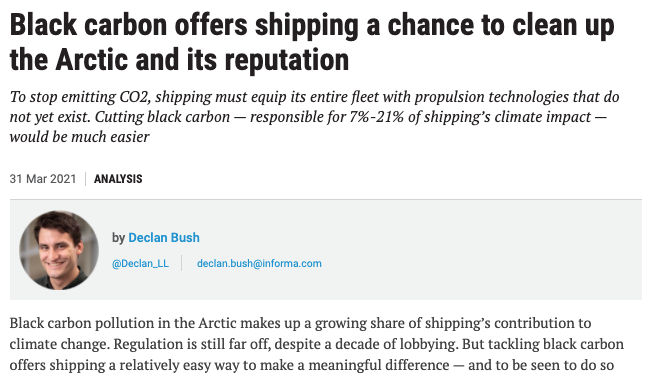
To stop emitting CO2, shipping must equip its entire fleet with propulsion technologies that do not yet exist. Cutting black carbon — responsible for 7%-21% of shipping’s climate impact — would be much easier
Lloyds List: Green groups dismayed as IMO sidesteps Arctic black carbon limits
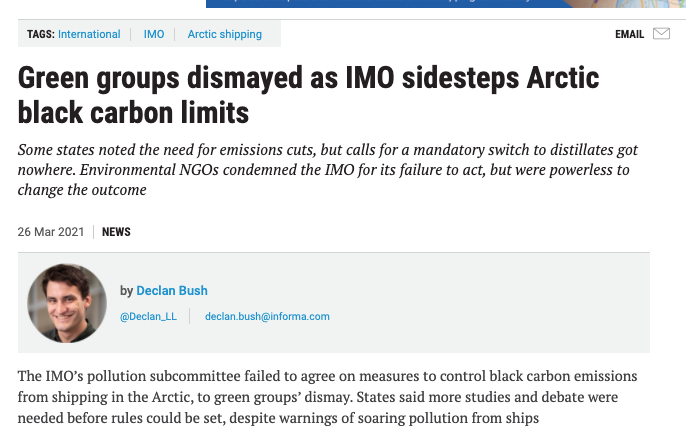
The IMO’s pollution subcommittee failed to agree on measures to control black carbon emissions from shipping in the Arctic, to green groups’ dismay. States said more studies and debate were needed before rules could be set, despite warnings of soaring pollution from ships.
UN Shipping Agency Slammed for Fiddling While Arctic Melts
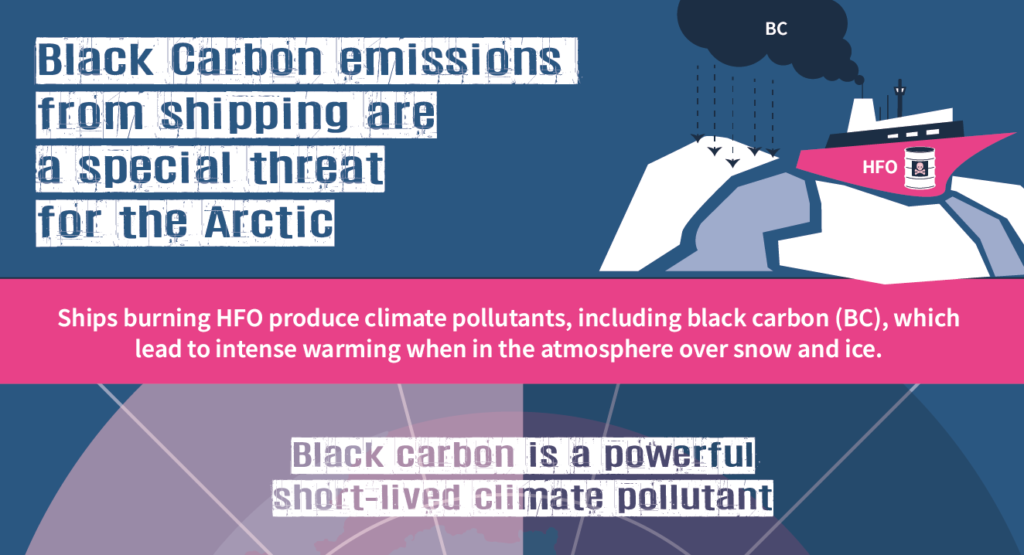
As this week’s virtual meeting of the International Maritime Organization’s Pollution Prevention and Response Sub-Committee (IMO, PPR 8) closes today, non-governmental organisations slammed the IMO proposal to develop weak non-binding “goal-based guidelines” instead of taking immediate and effective action to immediately reduce climate-warming emissions of black carbon from ships using heavy fuel oil in the Arctic.
Open Letter: International NGOs Urge Global Shipping Chief to Arrest Arctic Meltdown
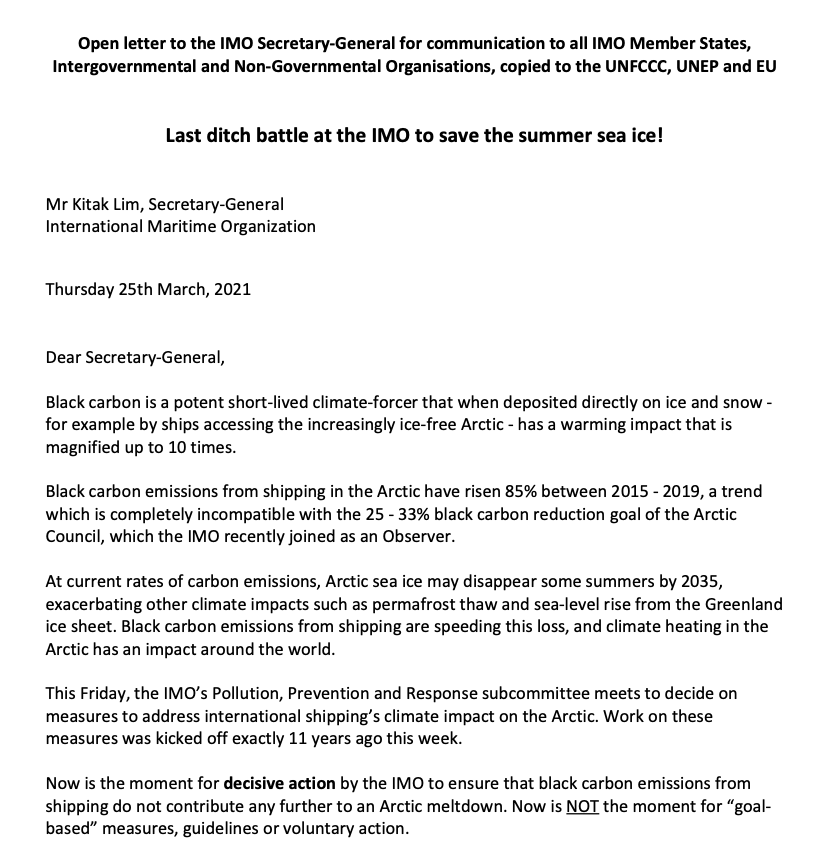
International NGOs have sent an urgent letter to International Maritime Organization (IMO) Secretary-General, Mr Kitak Lim, calling on him to take action to address international shipping’s climate impact, ahead of Friday’s crucial decision on IMO measures on black carbon emissions in the Arctic.
Lloyds List, PPR8: Green lobby frustrated at black carbon delays
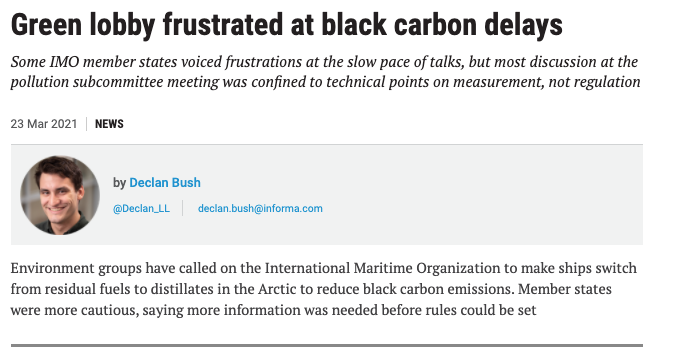
Environment groups have called on the International Maritime Organization to make ships switch from residual fuels to distillates in the Arctic to reduce black carbon emissions. Member states were more cautious, saying more information was needed before rules could be set.
NGOs Urge Shipping Body To Halve Arctic Black Carbon Impacts By Switching Fuels

As this week’s virtual meeting of the International Maritime Organization’s Pollution Prevention and Response Sub-Committee (IMO, PPR 8, 22-26 March) opens today, non-governmental organisations are calling on the IMO to seize the chance to immediately reduce climate-warming emissions of black carbon from ships currently using heavy fuel oil in the Arctic by some 44%, by switching them to cleaner distillate fuels.
Why Arctic Countries Must Go Further Than the IMO’s Weak Arctic Heavy Fuel Oil Ban
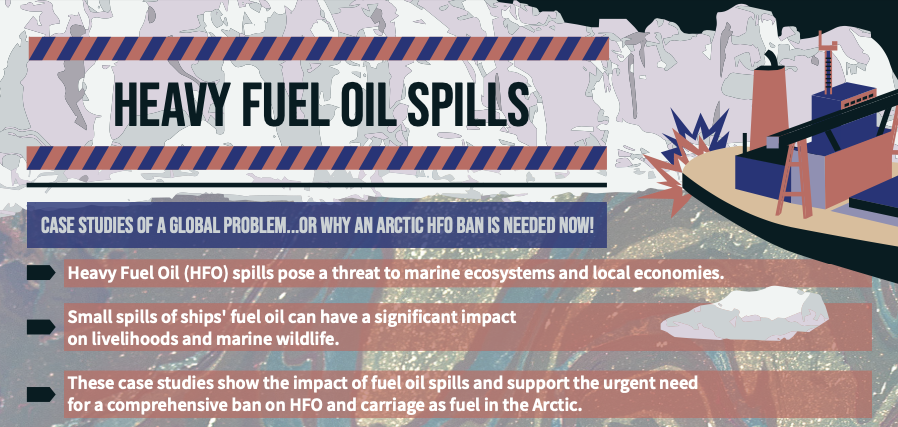
The IMO is on the cusp of missing a crucial opportunity to protect the Arctic – it has a last chance this June when the Arctic HFO ban is due to be adopted. IMO member states – particularly the Arctic nations – must stand up for the Arctic and its people and its wildlife by taking action to strengthen the Arctic HFO ban ahead of its adoption, and bring it into effect sooner than 2029.
How the IMO and Shipping Industry Can Halve Climate Warming Black Carbon in the Arctic
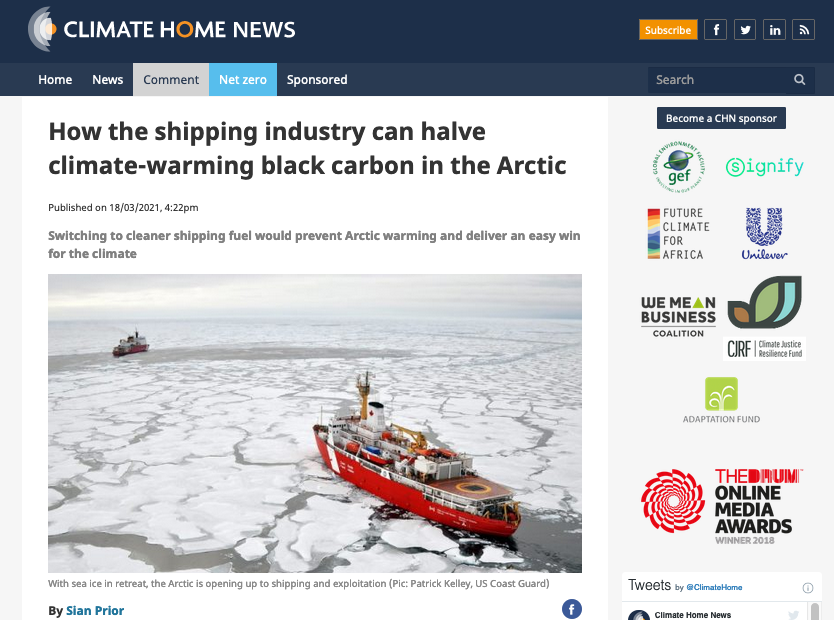
The Clean Arctic Alliance believes that by mandating a switch of fuels, the IMO – and the shipping sector could win an easy victory by achieving a major cut of black carbon emissions in the Arctic. It would also be a win for the global climate, for the Arctic and the people who depend on its ecosystem for their livelihoods.
Climate Home News: How the shipping industry can halve climate-warming black carbon in the Arctic

During PPR8, IMO member states have the chance to end this stasis. By putting in place regulations that cut emissions of black carbon from shipping the Arctic, the IMO can have a rapid and effective impact on black carbon emissions.
Webinar Video: Switching Fuel – How to Cut Black Carbon Emissions from Arctic Shipping

Join us to find out how switching fuels can cut black carbon emissions from Arctic shipping and help eliminate the harmful impacts on health and the climate. An event organised by the Clean Arctic Alliance during PPR 8 – Monday 22 March 2021 – 15:30 GMT

